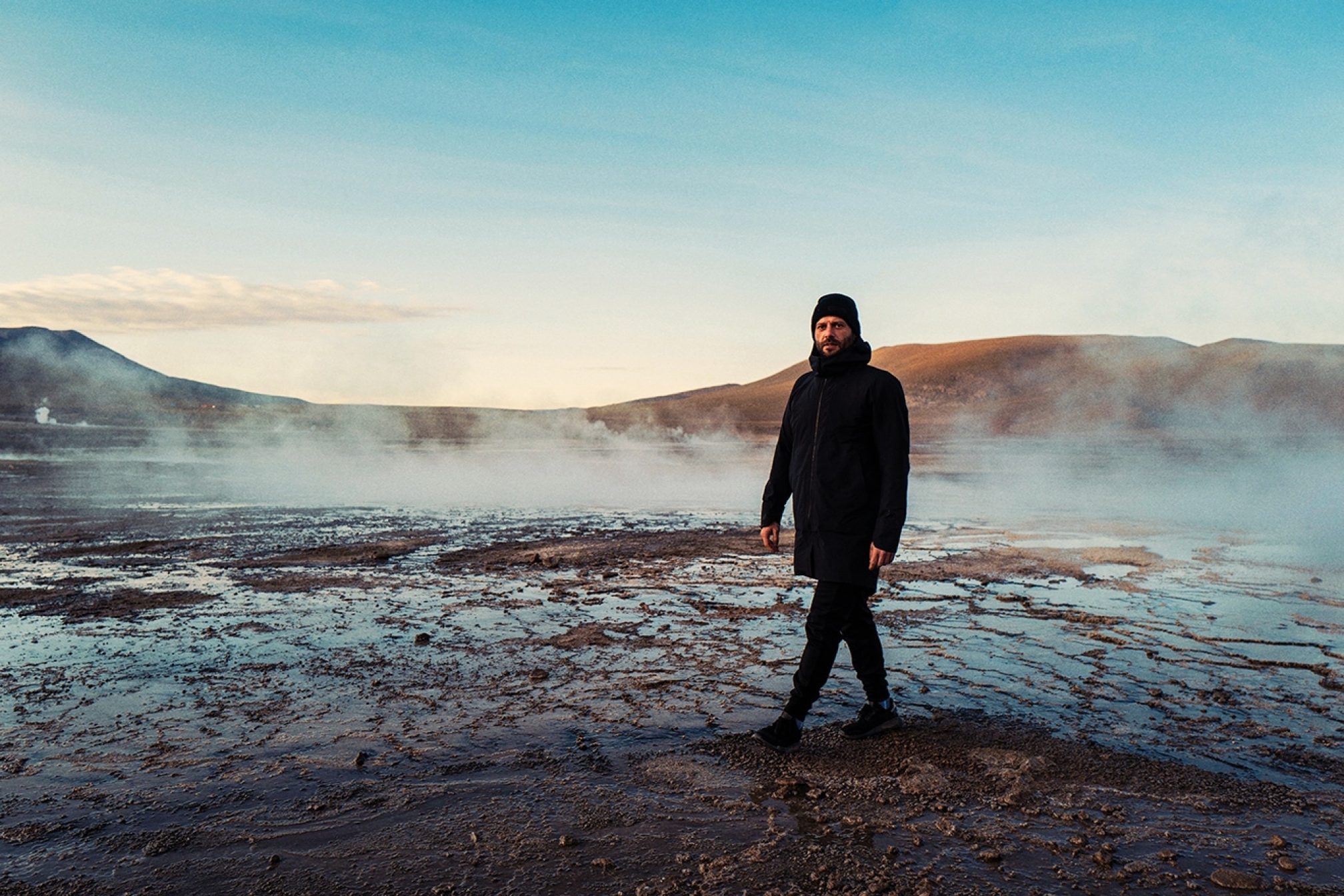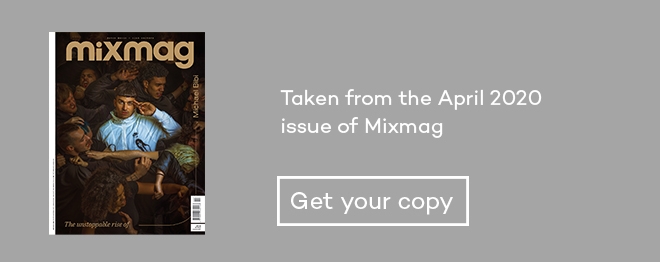 Artists
Artists
No short cuts: How Enrico Sangiuliano became the best-selling artist in techno
The Italian producer first conquered the Beatport charts before turning that dominance into DJ success. So what’s his secret?
It’s April 2016 and Enrico Sangiuliano is watching his track ‘X-Pollination’ fly up the Beatport charts until it hits No 1, where it will sit for two months. Released on Unrilis, a label founded by Rino Cerrone in Naples, the opposite end of the country to Milan where Enrico has lived since moving to study sound design aged 20, he has no explanation for its success.
But then it just keeps happening. Each new release makes a similar impact, until by the end of 2018 he’s been Beatport’s best-selling techno artist for the last three years. His DJ career, which for years had taken a back seat to making music and his day job as an audio engineer, is running full throttle. Unable to juggle it all, he quits his job and sets off on the international circuit, never looking back. In the last 12 months Enrico has toured Australia with Carl Cox, made his Burning Man debut and taken to the stages of the biggest events from Drumcode’s festival to Awakenings. He’s also expanded his personal brand with Solo, a party where he plays for the entire night. With fans asking for new music, he’s now heading back into the studio. It’s the dream journey, the fantasy, of countless producers in bedrooms and studios around the world. Does Enrico have the blueprint for success? And if so, can he repeat it?
Read this next: 7 industry tips for new artists who want to turn their hobby into a full-fledged career
Now splitting his time between Milan and Ibiza, the 33-year-old was born in a small village between Parma and Reggio Emilia. Brought up listening to his dad’s progressive rock and his grandmother’s singing, his early musical inclinations led to drumming. But it was hearing electronic music’s rhythms on the radio and “the possibility of using computers to create non-existent sounds” that drew him to become a bedroom DJ and producer. Listening to techno, hardcore, trance and drum ’n’ bass, his early productions experimented with mixing all these sounds. When a friend introduced him to an underground crew throwing illegal open air parties in the countryside, he auditioned as a DJ in their apartment on the giant rig stored there during the week and found his focus – both as a DJ and producer. “I was the morning guy,” he says of these “crazy times”, hammering out 155BPM tracks to wide-eyed dancers in the early sun. The slot lent his productions a feeling that has never left. “When I started playing raves, I began to make what I’d want to hear if I was in the crowd at that moment.”
Immersed in the scene for a number of years, when he was involved in a car crash he used the insurance payout to study in Milan. After graduating he worked in a recording studio, counting down the 10,000 hours required to perfect a skill and “spending eleven hours a day doing mixing, mastering and production for other people, then at night working on my own records.” Hiring his abilities out to string players, Brazilian bands, house producers and wannabe EDM stars, honed his technical talent, but it also introduced him to a world where the main motivation was often fame, the actual music an afterthought. Spending every day in this environment, which he says he “hated and never felt comfortable with”, shaped his view that there is ultimately no short cut to success – the long way being the only one to learn the vital lessons that will carry you above today’s vast competition.
“Everyone should develop their own sound identity, which takes years and years of production,” he says, telling us he’s developed a mentality that what he does today won’t bear fruit for a couple of years. Along the way: “Don’t rush, have fun and just be happy.” He has a PR agency now, but his run of chart success came “mostly from people sharing my music. You can have magazine interviews on top, but that’s just collateral. The most important thing is the track itself.”
Read this next: The Producergirls crew share 10 production tips
Reputation is key. Release “no fillers, just bombs”, he says, explaining that he works for a long time on each release. Today Adam Beyer is one of his closest and most trusted friends, and appearing on Drumcode in 2016, having previously been on Beyer’s other label Truesoul in 2012, was a milestone. “A label like that gives you credibility,” he says, and notes that his tracks seem to appeal to scenes as diverse as house and EDM, not just techno.
It was Secret Cinema who told him in his early days that he’d one day make music for a living. But, says Enrico, “money was never something I thought about. My dream was to be able to survive from music, but I mostly thought about pouring my feelings into the music, with everything else coming as a consequence.”
He struggled briefly with leaving the security of his job when he became too busy to juggle both, but says that his creativity has always flourished out of his comfort zone. “Everything has been so slow and organic that I now feel the momentum of this machine I’ve created behind me,” he says. “It cannot stop tomorrow.”
Still, it’s only recently, playing more and more gigs, that he’s seen his social media following going up. “When you’re Producer Of The Year for the first time, nobody knows you except people in the scene. It takes a while to reach the wider crowd.” Things like Spotify playlists and the more diverse crowds at big festivals are what take you to a new strata of popularity.
At his Solo parties, Enrico begins and ends in silence, his extended set time in-between allowing a range of dynamics most shows don’t. After talking to staff and fans, he’ll start with ambient. “After a couple of hours I reach a point when everyone’s going nuts, but the music is still calm. Every time I do Solo, it’s one of the best nights of my life.” And it’s firing his musical imagination again. “Solo has no limit in terms of genres, so I can play whatever. I’m still thinking about the dancefloor weapon that’s not been made yet.”
Read this next: Ambient music has become a soothing soundtrack to turbulent times
The further he gets into the studio mindset, waking up each day and immediately getting to work, the harder it is to get into that of the performer – and he needs both. After consciously focusing on the latter, pouring his emotions into touring 2018’s ‘Biomorph’ album, he’s ready to return to producing after a six-month break. But even with his past successes, this brings an element of fear. “Am I still able to make something cool?” he asks himself. “I have doubts, because I’m not fresh any more – but that’s also a good motivation to push yourself.”
His productions have used analogue gear, but equally been made entirely digitally. “If you’re a great producer, success can come as a by-product of doing a great job,” he says. It’s the best explanation he can offer for his steady rise, just pushing himself in the studio his professed grand plan. “That’s what happened to me, which means anyone passionate can do it.” And there’s no magic plug-in to fix it if you don’t.
Joe Roberts is Mixmag's house editor, follow him on Twitter
Read this next: Get the best of Mixmag direct to your Facebook DMs



